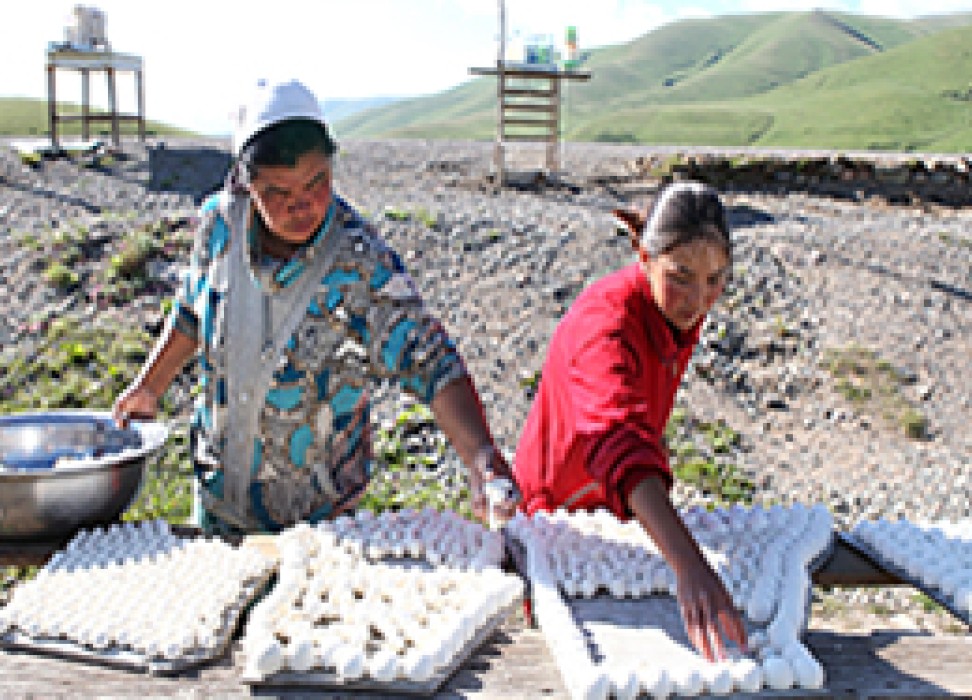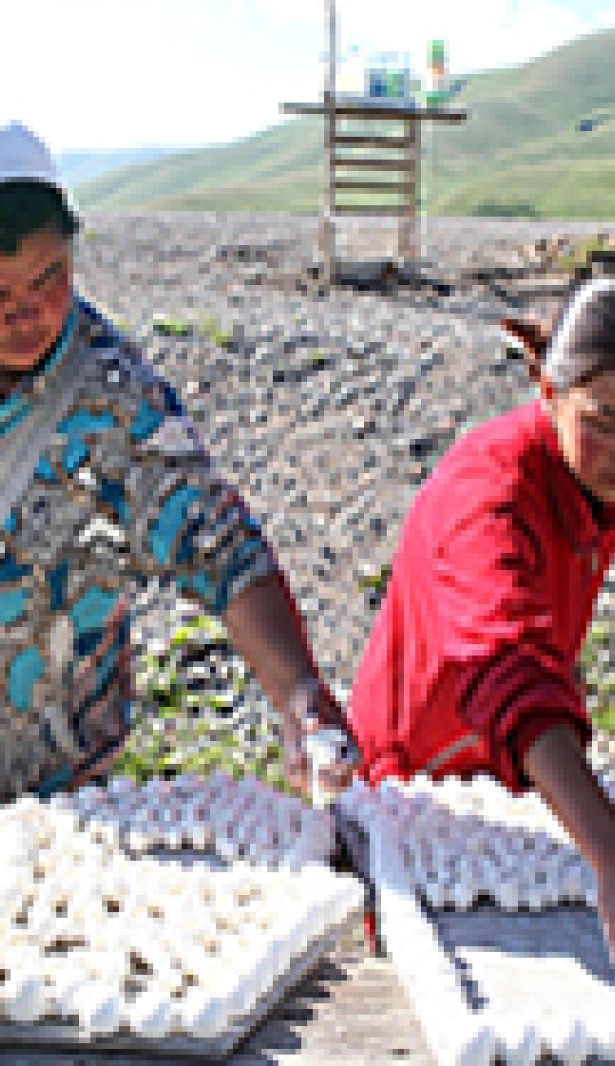Rise in unregistered marriages in Kyrgyzstan called “worrying”
11 February 2015

An increase in the number of unregistered marriages in Kyrgyzstan is causing concern among women’s groups and the UN Human Rights Regional Office for Central Asia.
The ceremonies are carried out mainly in rural areas. The marriages have no legal standing in the country. Under Kyrgyzstan family code, women and men have equal property rights in marriage, with couples signing a contract stating the division of property between them. But in unregistered marriages, there is no such contract and women lose out on these benefits.
“The practice is of concern because it undermines the rights and economic position of women and is closely tied with a prevalence of domestic violence,” said UN Human Rights Office Regional Representative a.i, Elisabeth da Costa.
“Some of the most problematic consequences of unregistered marriages are the rights of women to property, obtaining birth certificates for children and access to social services. We try to tackle problems through different approaches including wide awareness raising campaigns, together with local partners. One of these partners, the Women Entrepreneur Support Association/WESA says that only in 2014, compared to 2013, the number of those seeking legal advice on matters of sharing matrimonial property and on inheritance rights, has nearly doubled”, said Sabine Machl, the representative of the UN Women Kyrgyzstan Country Office.
“It is troubling that this practice is on the increase,” Da Costa said. “Although Kyrgyz legislation provides de jure gender equality, there is a significant gap regarding de facto equality for women in practice.”
“The rise in unregistered marriages is symptomatic of a return to traditional values brought on by the socio-economic hardships in Kyrgyzstan,” Da Costa said. These hardships have been exacerbated by a large immigration of people, especially from the countryside, to Russia in search of work.
“As a result, traditional values, often along patriarchal lines, took over,” she said. “Girls are expected to marry young, often against their will, without legal recognition. Women are given less status and this creates an environment for marginalization and increasing vulnerability for them.”
The UN Human Rights Regional Office for Central Asia has been working to ensure that women’s rights are protected and brought to the attention and action of State authorities. The Office is also providing technical support to State officials on better enforcement of existing laws.
During the Universal Periodic Review (UPR), Kyrgyzstan accepted recommendations to take further legislative and practical measures to eliminate violence against women, in particular bride-kidnapping of underage girls, polygamous unions, forced marriages and early marriage of girls. The UPR is a review of the human rights records of a member State. It provides the state an opportunity to declare what it has done to improve human rights in their countries and fulfil their obligations.
“We hope to provide more awareness and protection of women’s rights to matrimonial property and their security,” Da-Costa said. “Gender-based violence remains one of the most pervasive forms of violence against women in Kyrgyzstan and we will continue to work with NGOs and other United Nations agencies to flag this issue and give it more visibility.”
11 February 2015

